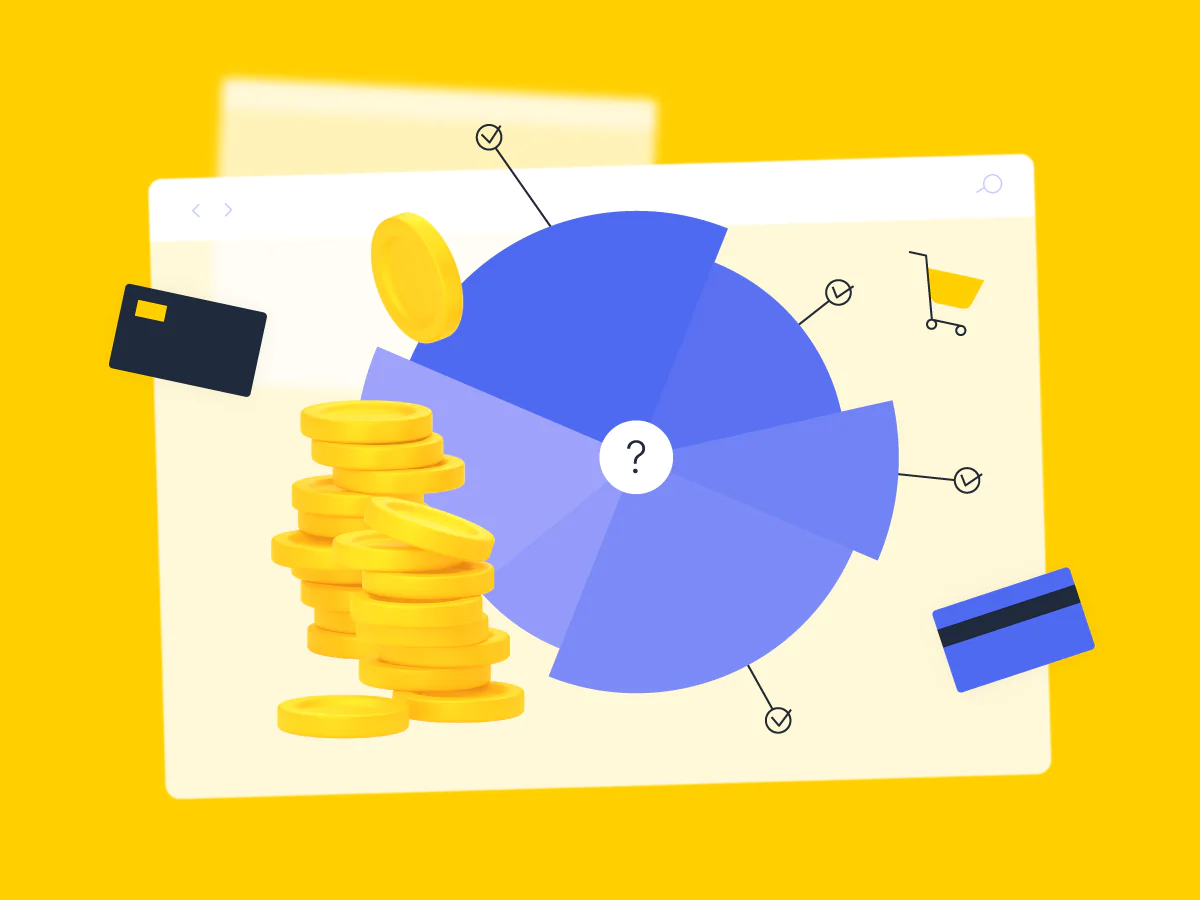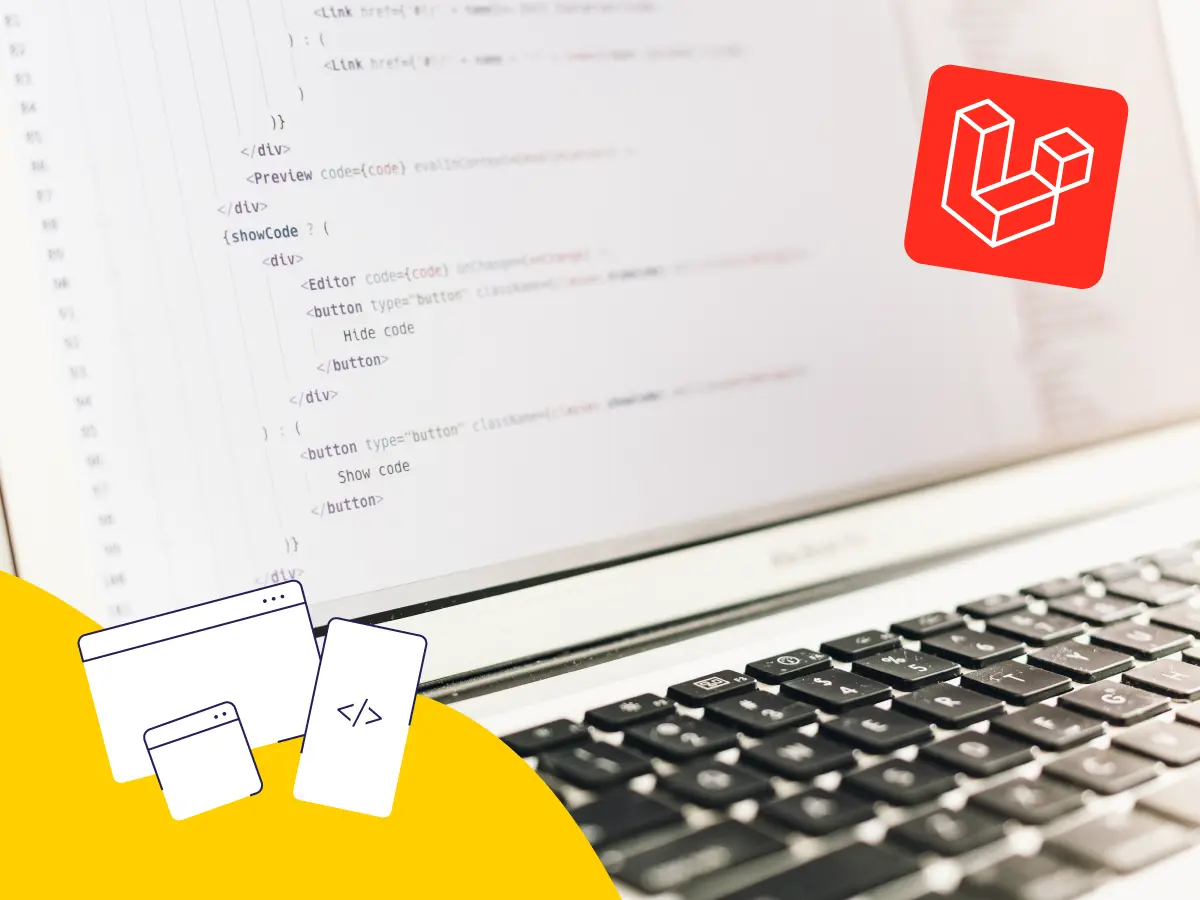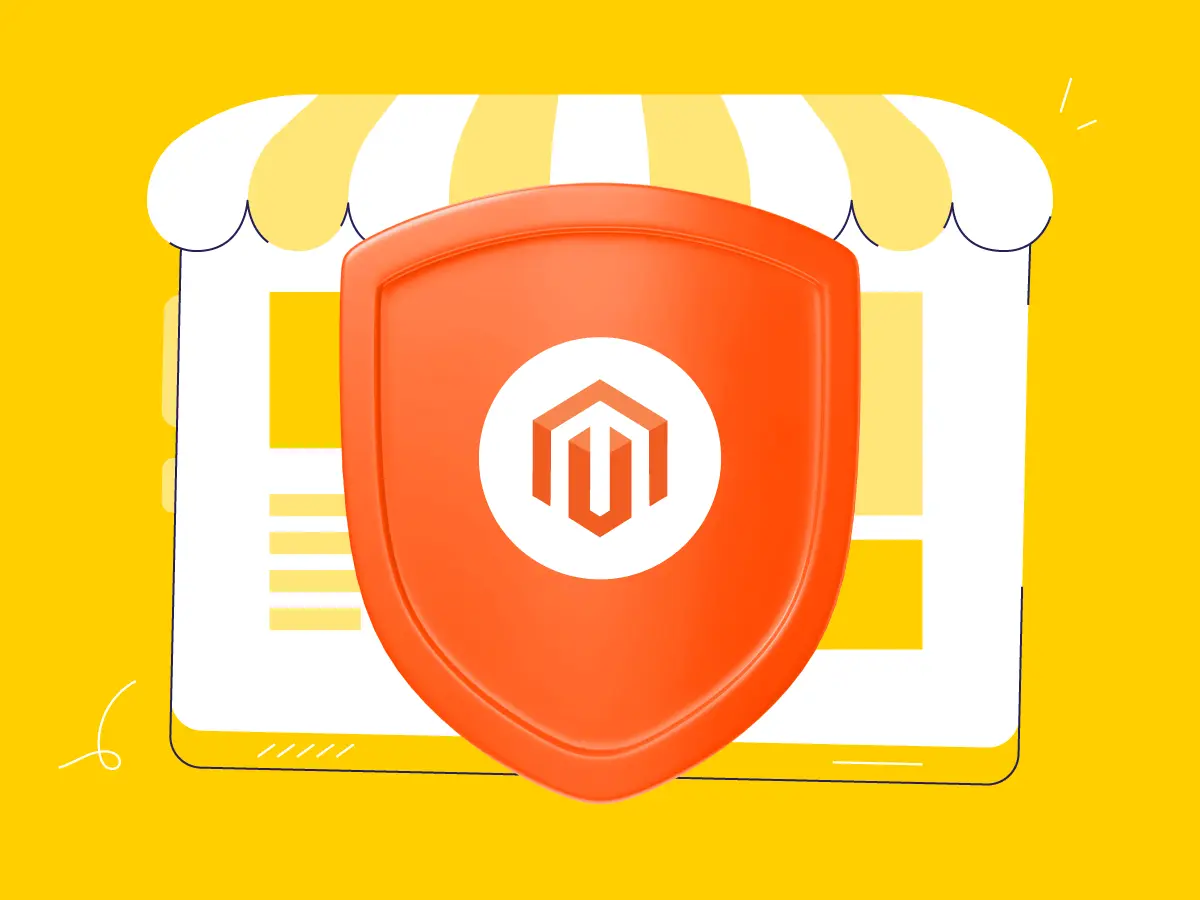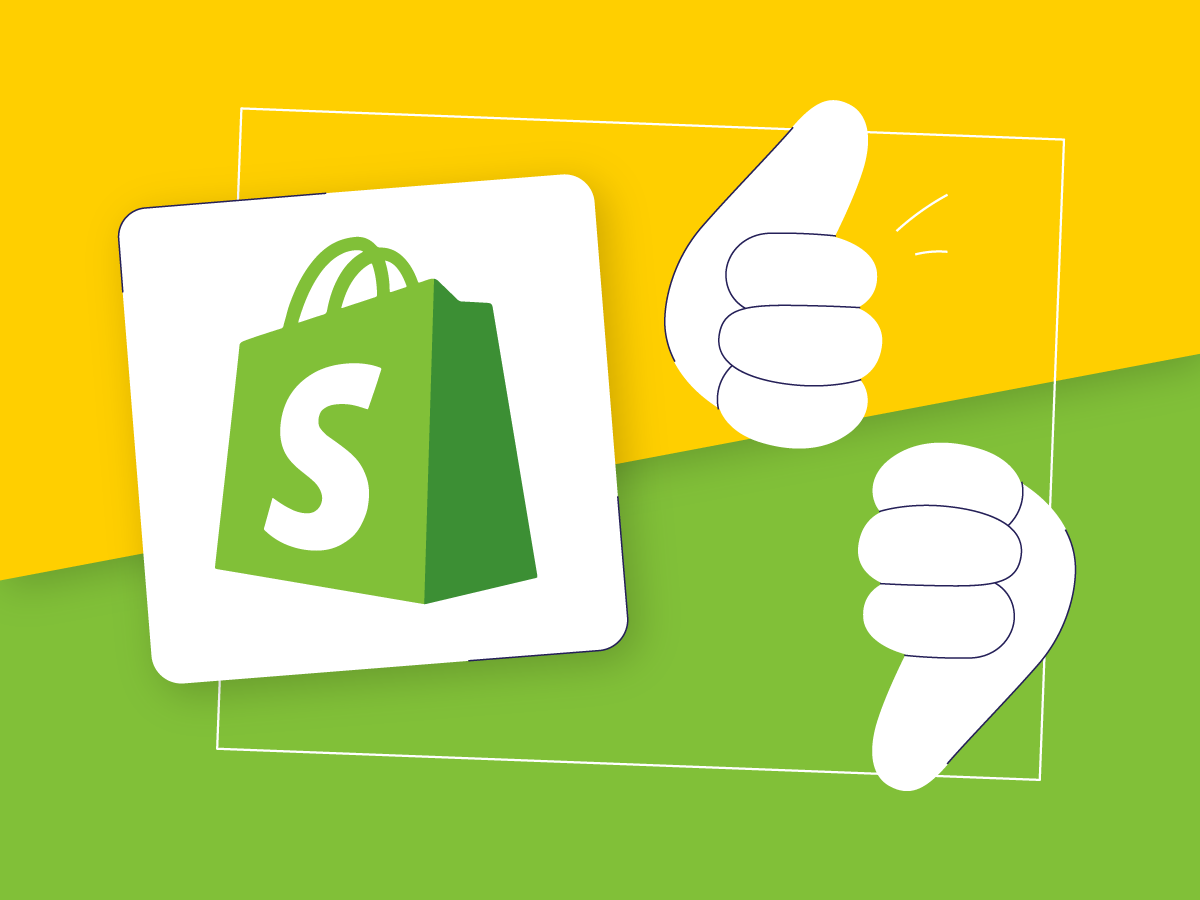By the year 2040, nearly 95% of all shopping will be conducted online. Thus, going online for shops is a must. However, the price tag for launching an eCommerce website isn’t set in stone. It swings widely from around $50 to potentially thousands, depending on how elaborate and large your online shop dreams are.
This guide helps you break down the cost of creating a website. Treat it as a map to navigate through the expenses of eCommerce setup, aiming to give you a clearer idea of your budget.
Behind-the-scenes сosts for your eCommerce site
Why not try piecing together your budget instead of leaning on automatic cost calculators? It’s a bit more hands-on but factors in your project’s unique bits.
A good starting point? List out everything you’ll need – from your website’s domain name to the eCommerce platform, any extras, and the support services that’ll keep you ticking. This way, you’re stripping down to the basics, making it easier to see what your online store needs to thrive.
Figuring out the cost of an eCommerce website involves comparing various platforms, tools, and services that match your specific business needs. This approach is the most reliable for getting a true picture of your costs
Online calculators? Skip them. They often miss the mark due to the complexity and variability of eCommerce projects.
Let’s simplify our cost breakdown into key areas:
- Hosting costs: Where your website lives online.
- Overall build cost: Custom development vs. DIY.
- Website design: The look and feel.
- Add-ons and extensions: Extra features.
We’re focusing on three popular platforms for creating an online store: Magento and Shopify.
Your online store’s foundation needs a few essentials:
- domain name (your shop’s address),
- web hosting (where your shop’s data lives),
- SSL certificate (keeps your shop safe).
The eCommerce platform you choose might bundle some of these costs. For instance, platforms like Shopify include hosting, and you can also snag a domain name.
The price of hosting a website can really range, starting from just about $2.49 a month and can soar to $1,000 or more. What you end up paying hinges on several things like the amount of visitors your shop attracts and whether you opt for additional features, like automatic backups.
When it comes to e-commerce brands, they typically go for one of two hosting options:
- SaaS ecommerce platform hosting. Platforms, such as Shopify, eliminate the need for you to handle domain installation, management, or hosting by yourself. All the essentials are covered within your monthly subscription cost.
- Self-hosted eCommerce website. Some website builders like Magento are free. However, you need to have an account with an e-commerce hosting provider to manage your files and purchase a domain. Going the self-hosted route, like with Magento, means you’ll need to find your own hosting service. Plus, setting up your server demands a bit more tech know-how.
Cost breakdown for small to medium businesses:
- Domain name: starting with 10-20 annually
- Web hosting (SaaS): $29 to $250 monthly
- Web hosting (Self-hosted): starting with $2.99 monthly
Custom website development vs. DIY builders: weighing the costs
Deciding between custom development and DIY website builders for your eCommerce venture is like choosing between crafting a tailored outfit or picking one off the rack. Both have their place, appeal, and ideal users, depending on your needs, skills, and aspirations. Let’s break it down to understand who might lean towards which option and why.
Custom development: tailored for growth and uniqueness
Opting for custom development is akin to building a ship tailored for your specific voyage. It’s about creating a distinctive, scalable online store that mirrors your brand’s essence and meets your business’s unique requirements.
The cost of an eCommerce website might start at $5,000. However, it can climb significantly based on your needs. Custom solution offers unparalleled flexibility and growth potential.
Web developers, project managers, designers, and QA experts all work to ensure that your website functions flawlessly. They follow the best website development practices and opt for advanced solutions.
Who might choose custom development?
- Established businesses scaling up. You’re outgrowing your initial setup and need more functionality or a unique customer experience.
- Businesses requiring specific integrations. Your business depends on seamless integration with existing systems (like inventory management, custom CRM software, or advanced analytics).
What business needs does custom development cover?

Limitless scalability
As your business grows, a custom site can evolve with you. You can add new features or scale up operations without being limited by platform constraints.

Unique functionality and user experience
Custom sites can offer unique shopping experiences. It helps you improve engagement and conversion rates.

Integration with business operations
Custom development can ensure your website integrates flawlessly with your business’s backend and external systems. So, your operation flow is seamless.
Our Alva team is a fan of the Laravel framework when it comes to custom website development. But we understand that different business tasks require different approaches.
If you are at the decision-making stage of how to build your custom website, this article collection will be useful to you:
- Why Choose Laravel Framework For Web Development
- Laravel vs. Symfony: Overview of PHP Frameworks
- Laravel vs. React: Choosing the Framework for Your Next Project
- Laravel Vs. WordPress: Which One To Choose And Why?
DIY website builders: Quick, cost-effective, and user-friendly
On the other hand, DIY website builders like Shopify serve as ready-made rafts. They are ideas; for those navigating tighter budgets or timelines. With monthly fees ranging from $24 to $300, they offer a quick and cost-effective launchpad. However, this convenience might come with constraints, limiting your ability to expand or customize as your business grows.
While the cost of creating a website using such builders is highly attractive, you cannot add custom features or functionality. You can only rely on the standard set of features, apps, and extensions available in the platform’s marketplace.
Who might choose custom development?
- Startups and small businesses. DIY builders offer an accessible starting point without a hefty initial investment.
- Entrepreneurs testing the waters. You want to launch a minimal viable product (MVP) to test a business concept.
- Businesses with standard needs. Your business model fits well within the scope of standard eCommerce functionalities (like product listings, basic checkouts, and payment processing).
What business needs does a website builder cover?

Speed to market
DIY builders allow for rapid setup, meaning you can go from concept to launch much faster than with custom development.

Ease of use
With intuitive drag-and-drop interfaces, you don’t need technical skills to build or manage a DIY site.

Cost efficiency
With lower upfront costs and predictable monthly fees, DIY platforms are budget-friendly.
eCommerce website design costs
When it comes to creating an eCommerce website in 2024, think of it as building your own digital storefront. Just like in the real world, you want your store to be inviting, easy to navigate, and of course, a place where your customers love to shop.
Why does it matter? Nearly half of the people visiting your website will view the design of your e-commerce interface as the key factor in deciding whether to trust your brand.
The factors at play
- DIY vs. professional design
Are you planning to roll up your sleeves and design the website yourself using platforms like Shopify? Or, are you considering hiring a professional designer or agency? DIY might save you some upfront costs, but for a custom, professional look, investing in expert design can really set your brand apart.
- Template vs. custom design
Using pre-designed templates is a cost-effective option, often requiring only a one-time purchase fee or even being free. Custom designs, on the other hand, offer uniqueness and tailored user experiences but come with a higher price tag due to the personalized work involved.
The cost of an eCommerce website design in 2024 can range widely. For those opting for a DIY approach with a basic template, costs could be as low as a few hundred dollars.
However, for a fully customized design from a reputable agency, prices could soar to $5,000 – $20,000 or even more, depending on the complexity and specific requirements.
Plugins and apps for customizing your store’s functionality
Plugins and apps let you add new features to your shop, making it just right for your business and a joy for customers to browse.
eCommerce platforms love keeping things flexible. They use a building block system that lets you add, swap, and upgrade features easily, without turning everything upside down. It’s like adding Lego pieces to your base set to build something. This keeps the main system easy to use and quick to run, while still letting you get creative with extra features.
When estimating the eCommerce website pricing, it would be useful to make a list of features you want to have in your store. After that, you can research apps that can add them to your store and consider their prices. Here’s a list of basic functionalities for which you might consider utilizing apps and extensions:
- Advanced product search and AI customization to help customers find products more efficiently.
- Customer Relationship Management (CRM) to manage and analyze customer interactions and data.
- Email marketing integration to automate your email marketing campaigns to engage customers with personalized messages.
- Security enhancements and best practices to protect your business and customer data.
- SEO tools to improve your site’s visibility on search engines.
- Shipping and fulfillment solutions to streamline your shipping process.
- Inventory management to keep track of your stock levels and manage your inventory more efficiently.
- Abandoned cart recovery to entice customers back to complete their purchases.
While many of these handy add-ons are free, some might ask you to open your wallet. Investing in the right ones can mean a better shop and happier customers, but it’s also important to think about what you really need and what you can afford. Balancing your budget with your dreams is key here.
Partnering with Alva Commerce for custom eCommerce development
Alva Commerce isn’t just another development service; we’re your strategic partner in building an eCommerce presence that stands out for its uniqueness and is tailored to grow with you. Here’s a condensed look at what makes us the right choice:
- Custom solutions. Your business is one of a kind, and your eCommerce site should be too. We specialize in creating custom websites that capture your brand’s essence. We also ensure that they are built for scalability and adaptability.
- Expert team. Our team brings deep expertise in web development, UX design, and eCommerce strategy. Thus, we offer you a blend of aesthetics and functionality that’s optimized for sales and user experience.
- Value over time. Choosing Alva Commerce means opting for a cost-effective growth path. Our solutions are designed to minimize the need for costly overhauls as your business expands.
- Understanding and support. We approach every project with the understanding that we’re not just building a website but supporting your vision and dreams. Expect a partnership rooted in support, from the first consultation to ongoing maintenance.
- Integrated technology. Your site needs to integrate with your business operations and provide insightful analytics. We ensure your platform has the tools to streamline your processes and decision-making.
E-commerce website cost summary
Here’s a breakdown to guide you through eCommerce website pricing:
1. Domain Name
This is your digital address. Costs typically start from $10-20 annually, but prices can vary based on the domain’s desirability.
2. Web Hosting
- SaaS (Software as a Service) eCommerce Platform Hosting: Platforms like Shopify bundle hosting with their services, with fees from $29 to $250 monthly.
- Self-hosted: Requires a hosting provider. Costs start at about $2.99 monthly but can escalate with increased traffic or added services like automated backups.
3. Website Design
- DIY using templates: Can be low cost, even free, to a few hundred dollars.
- Professional Custom Design: Depending on complexity and designer reputation, prices can span from $5,000 to $20,000 or more.
4. eCommerce Platform
Depending on the platform and plan, costs can vary. For example:
- Shopify: Plans range from $24 to $300 monthly.
- Magento: Free Community Edition, but enterprise versions and hosting can add significant costs.
5. Add-ons and Extensions
These enhance functionality but vary widely in cost. Some are free, while others can cost hundreds of dollars per year.
To wrap it up
The journey into eCommerce website development in 2024 isn’t just about putting a price tag on setting up shop online. It’s more about understanding the mix of initial and ongoing costs that will keep your digital doors open. Whether you’re starting fresh or aiming to grow, getting a grip on these expenses is key. Every choice has a big impact on your budget and your business’s future success.
That’s why choosing a partner like Alva Commerce for custom development could make a big difference. Our blend of personalized solutions, deep expertise, and a supportive approach offers a smart balance.
It’s not just about spending less now; it’s about investing in a way that sets you up for growth and keeps your eCommerce venture competitive. Remember, smart investments in your website aren’t just costs—they’re steps towards building a thriving online business that stands out in the bustling digital market.










